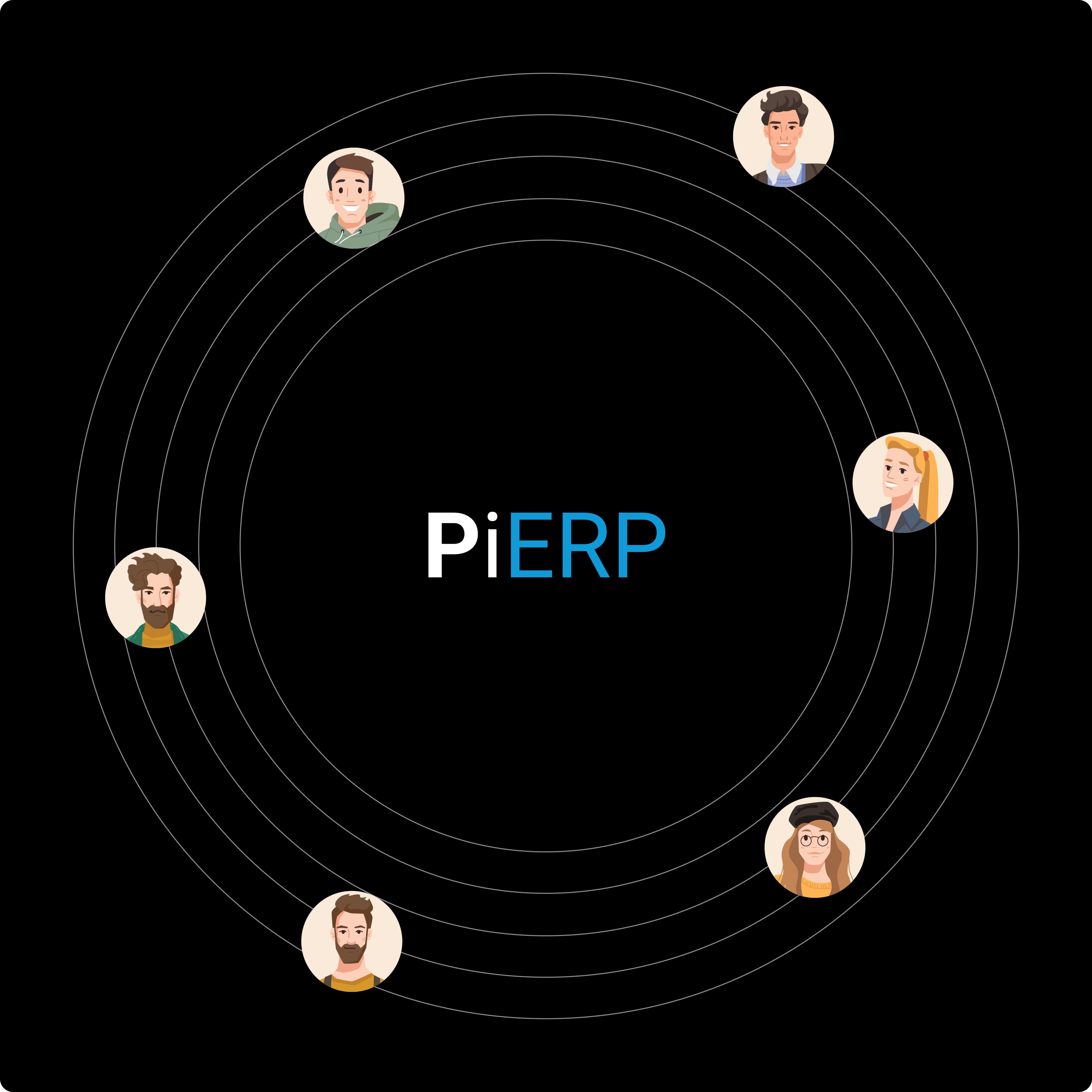When it comes to choosing the best enterprise resource planning software ERP for your business, you have two main options: custom ERP software and off-the-shelf ERP software. Both types of ERP solutions have their own advantages and disadvantages, and the right choice depends on your business needs, budget, and long-term goals. In this article, we’ll explore the differences between custom and off-the-shelf ERP systems, and help you determine which is the best fit for your business.
Off-the-Shelf ERP Software
Off-the-shelf ERP software, also known as ready-made or pre-packaged ERP solutions, is developed by software vendors and sold to multiple businesses. These solutions are designed to address common business needs and are generally more affordable and quicker to deploy. Here’s a look at the benefits and drawbacks of off-the-shelf ERP systems:
Benefits of Off-the-Shelf ERP Software:
Off-the-shelf enterprise resource planning software offers several advantages that can make it a smart choice for many businesses:
- Lower Costs:Off-the-shelf ERP systems are generally more affordable than custom solutions. Since these systems are pre-made and used by many companies, the development costs are spread out, making the software less expensive for individual users.
- Quick Implementation:These ERP systems are ready to use right out of the box. This means you can have your system up and running much faster than with a custom-built option. It helps your business start benefiting from the software quickly.
- Proven Reliability:Off-the-shelf ERP software has been tested and used by many other businesses. This track record helps ensure the software is stable and reliable. You’re likely to encounter fewer bugs or issues compared to a newly developed custom solution.
- Regular Updates:Most off-the-shelf ERP providers offer regular updates and improvements. This ensures you benefit from the latest features and security enhancements without having to manage these updates yourself.
- Support and Resources:Since many businesses use off-the-shelf ERP software, there’s often a wealth of support available. This includes user guides, forums, and customer service. You can also find plenty of third-party consultants and experts familiar with the software.
- Scalability:Many off-the-shelf ERP systems can be scaled to accommodate business growth. They offer key ERP modules and features that can be added as your needs expand.
In summary, off-the-shelf ERP software is cost-effective, quick to implement, and reliable, with the added benefit of regular updates and extensive support. This makes it a practical choice for many businesses looking to streamline their operations.
Drawbacks of Off-the-Shelf ERP Software:
Off-the-shelf ERP software has several drawbacks that businesses should consider:
- Limited Customization:Off-the-shelf enterprise resource planning solutions come with preset features and functions. While they cover common business needs, they may not fully meet specific requirements of every business. Customizing these systems can be challenging and may not always address unique needs effectively.
- Generic Features:These ERP solutions are designed to be used by a wide range of businesses. This means that some features may be too general and not perfectly suited to your industry or company. You might find yourself using only a fraction of the available functions.
- Integration Issues:Off-the-shelf ERP software might not integrate smoothly with your existing systems or other software you use. This can create challenges in data sharing and workflow efficiency, leading to additional work and potential errors.
- Less Flexibility:As your business grows or changes, you may find the software less adaptable to new requirements or processes. Since it's designed for a broad audience, making significant changes or adding new features can be limited.
- Potential Overlap:With off-the-shelf ERP, you may end up paying for features that you don’t need or use. This can lead to wasted resources and higher costs without getting the full value from the software.
- Standard Support:Support for off-the-shelf enterprise resource planning ERP solution is generally standard and may not offer the personalized assistance you might need for specific issues or customizations.
In summary, while off-the-shelf ERP software is cost-effective and ready to use, it may lack the flexibility and specific features needed for unique business requirements and can face integration challenges.
Benefits of Custom ERP Software:
- Custom ERP Software:Custom ERP software is developed specifically for your business. It is tailored to meet your unique needs and can be built from scratch or based on an existing ERP platform with modifications. Here’s a closer look at the benefits and drawbacks of custom ERP solutions.
- Tailored to Your Business:Unlike off-the-shelf ERP systems, custom ERP software is built to fit your exact requirements. This means it includes features and functions that are relevant to your business, and leaves out unnecessary elements. You get a solution that works precisely the way you need it to.
- Flexibility and Scalability:As your business grows or changes, custom ERP software can evolve with it. You can add new features, modules, or users as needed. This flexibility ensures that your system remains useful and effective, no matter how your business changes over time.
- Better Integration:Custom ERP software can be designed to work smoothly with your existing systems and processes. This means better data flow and fewer issues with compatibility. When different parts of your business work together seamlessly, it helps improve efficiency and accuracy.
- Increased Efficiency:By automating processes that are specific to your business, custom ERP software helps streamline operations. This can reduce manual tasks and errors, making your workflows faster and more efficient. Employees spend less time on repetitive tasks and more time on important activities.
- Enhanced Security:Custom ERP systems can be designed with advanced security features tailored to your business’s needs. This means better protection for your sensitive data and a reduced risk of security breaches. You can have more control over who accesses your data and how it is used.
- Dedicated Support:With custom ERP software, you often receive dedicated support from the developers. This means you get personalized help and quicker resolution of issues. Ongoing support ensures that your system runs smoothly and adapts to any new requirements or challenges.
- Competitive Advantage:A custom ERP solution can provide features and capabilities that give you an edge over competitors. It can help you optimize operations in ways that standard ERP systems might not, leading to better performance and productivity.
- Drawbacks of Custom ERP Software:Custom ERP software offers many benefits but also comes with some drawbacks that you should consider.
- Higher Costs:Custom ERP systems are typically more expensive than off-the-shelf solutions. The development process involves a lot of time and effort, which can drive up costs. This includes not just the initial investment but also ongoing maintenance and updates.
- Longer Implementation Time:Creating a custom ERP solution takes time. Unlike ready-made systems that can be quickly installed, custom solutions need to be developed from scratch. This means it can take months or even years before the system is fully operational.
- Complex Development:Building a custom ERP system requires a deep understanding of your business processes. If the development team doesn’t fully grasp your needs, it can lead to a system that doesn’t meet your expectations or is difficult to use.
- Ongoing Maintenance:Once your custom ERP system is up and running, it requires regular maintenance and updates. This can be time-consuming and costly, as you may need specialized support to handle issues or make adjustments.
- Risk of Obsolescence:Technology changes quickly, and custom ERP systems might become outdated if not regularly updated. Staying current with new technology trends and integrating them into your custom system can be challenging.
- Limited Vendor Options:With custom ERP software, you rely on the development team for support and updates. This can limit your options if the vendor goes out of business or fails to provide the necessary ongoing support.
In summary, while custom ERP software is tailored to your needs, it comes with higher costs, longer implementation times, and the need for ongoing maintenance. It’s important to weigh these drawbacks against the benefits to determine if it’s the right choice for your business.
Making the Right Choice for Your Business:
Choosing the right ERP system for your business is a critical decision that can significantly impact your operations and growth. Here's an easy way to help you choose the right option:
- Assess Your Needs:Start by identifying your business’s specific needs. Consider the key functions you need from an ERP system, such as inventory management, financial tracking, or customer relationship management. Understanding what you need will help you choose a system that fits well with your business processes.
- Evaluate Your Options:There are two main types of ERP systems: off-the-shelf and custom. Off-the-shelf ERP systems are ready-made and can be used right away, but they may not fit all your specific needs. Custom ERP solutions are designed specifically for your business, offering tailored features but at a higher cost and longer implementation time.
- Consider Costs:Look at both the upfront and ongoing costs. Off-the-shelf ERP systems generally have lower initial costs but might require additional customization and integration expenses. Custom ERP systems usually involve higher initial costs due to development and implementation but can be more cost-effective in the long run if they perfectly match your needs.
- Think About Scalability:Make sure the ERP system can grow with your business. As your business expands, you’ll need a system that can handle increased data and processes. Both off-the-shelf and custom solutions should offer scalability, but custom solutions can be designed to adapt specifically to your growth.
- Check Integration Capabilities:Ensure the ERP system can integrate smoothly with your existing software and systems. Good integration helps streamline operations and reduces manual data entry.
- Evaluate Support and Training:Consider the level of support and training offered. Adequate support is crucial for troubleshooting and ensuring your team can use the system effectively.
- Look for User Reviews:Research and read reviews from other businesses using the same ERP systems. Their experiences can provide valuable insights into how well the system performs and any potential issues.
Conclusion:
Both custom and off-the-shelf ERP software have their own advantages and disadvantages. Custom ERP solutions offer a high level of personalization and scalability but come with higher costs and longer implementation times. Off-the-shelf ERP systems are more affordable and quicker to deploy but may require compromises in terms of customization and integration.
To choose the right business ERP, carefully assess your specific needs, budget, and long-term goals. By understanding the benefits and drawbacks of each option, you can select the ERP system that best supports your business operations and helps you achieve your objectives. Whether you opt for a custom solution or an off-the-shelf system, the right ERP software can significantly enhance your business efficiency and growth.
PiERP provides the flexibility to choose between custom and off-the-shelf cloud based ERP solutions, ensuring that your business can find the perfect fit for its unique needs. Whether you require a tailored cloud based ERP software to support specialized workflows or a ready-to-use solution to streamline operations quickly, PiERP delivers both with reliability and efficiency. By offering scalable and adaptable options, PiERP empowers your business to enhance productivity, optimize resources, and achieve sustainable growth, making it an invaluable partner in your journey toward success.






